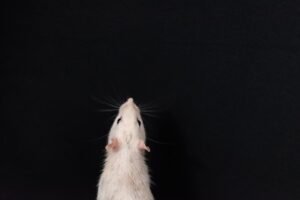Love birds are small, colorful parrots native to Africa, belonging to the genus Agapornis, which means “love bird” in Greek. They are popular pets due to their affectionate nature, beautiful plumage, and vocal abilities. These birds are known for forming strong bonds with their owners and are often associated with love and companionship.
There are several species of love birds, including the peach-faced, Fischer’s, and masked love birds. Each species has distinct coloration and markings. Love birds are playful, energetic, and intelligent, making them engaging pets for both novice and experienced bird owners.
Love birds thrive on social interaction and can be trained to perform various tricks. They communicate through chirping and singing, and with proper care, they can live up to 15 years. Their vibrant personalities and strong social bonds make them ideal companions for those seeking a long-term, affectionate pet.
Key Takeaways
- Love birds are small, social birds known for their affectionate behavior and strong pair bonds.
- When choosing a love bird, consider factors such as size, personality, and compatibility with other birds.
- Provide a spacious cage with perches, toys, and a variety of food and water dishes for your love bird’s home.
- Love birds require a balanced diet of seeds, pellets, fresh fruits, and vegetables to maintain their health and well-being.
- Spend quality time with your love bird, engage in interactive play, and provide mental stimulation to build a strong bond and ensure their happiness.
Choosing the Right Love Bird for You
Considering the Bird’s Social Needs
Additionally, consider whether you want a single love bird or a pair, as these birds are highly social and may benefit from having a companion. Another important consideration when choosing a love bird is their age. While baby love birds may be more easily tamed and trained, older birds can also make wonderful pets with the right amount of patience and care.
Health, Behavior, and Acquisition
It’s also important to consider the bird’s health and behavior when selecting a love bird, as these factors can impact their overall well-being and compatibility with you as an owner. Finally, consider where you will acquire your love bird from, whether it’s a reputable breeder or a rescue organization. By taking the time to carefully consider these factors, you can ensure that you choose the right love bird that will bring joy and companionship into your life.
Meeting the Bird’s Needs
In addition to considering the species, age, and source of your love bird, it’s important to also take into account the specific needs of these birds in terms of space, diet, and socialization. Love birds require a spacious cage with plenty of room to move around and exercise, as well as toys and perches to keep them mentally stimulated. Additionally, love birds thrive on a diet of fresh fruits, vegetables, seeds, and pellets, so it’s important to provide them with a balanced and nutritious diet to support their overall health and well-being. Finally, love birds are highly social creatures that require regular interaction and companionship, so it’s important to consider whether you have the time and commitment to provide them with the attention they need to thrive in your care.
Setting Up the Perfect Home for Your Love Bird

Creating the perfect home for your love bird is essential for their health and happiness. Love birds require a spacious cage that allows them to move around freely and exercise their wings. The cage should be large enough to accommodate multiple perches, toys, and feeding dishes while still providing plenty of room for your bird to move around.
It’s important to choose a cage that is made of durable materials and has secure latches to prevent escapes. Additionally, make sure that the cage has bars that are spaced closely enough together to prevent your bird from getting stuck or injured. In addition to providing a spacious cage, it’s important to set up the interior of the cage with plenty of enrichment items to keep your love bird mentally stimulated.
This can include a variety of perches of different sizes and textures, as well as toys such as bells, ropes, and chewable items. Love birds are highly active and curious creatures, so providing them with plenty of mental stimulation is essential for their overall well-being. Additionally, make sure to include multiple feeding dishes for water, seeds, pellets, and fresh fruits and vegetables to ensure that your bird has access to a balanced diet.
When setting up your love bird’s home, it’s important to consider the location of the cage within your home. Love birds thrive on social interaction and should be placed in an area where they can be part of the family’s daily activities. However, it’s important to avoid placing the cage in direct sunlight or drafts, as this can be harmful to your bird’s health.
Additionally, make sure that the cage is placed at a comfortable height for both you and your bird to interact easily. By taking the time to set up the perfect home for your love bird, you can ensure that they have a safe and comfortable environment where they can thrive and flourish.
Feeding and Nutrition for Love Birds
| Feeding and Nutrition for Love Birds | |
|---|---|
| Seed mix | Provide a high-quality seed mix specifically formulated for love birds |
| Fresh fruits and vegetables | Offer a variety of fresh fruits and vegetables such as apples, carrots, and leafy greens |
| Protein sources | Include protein sources like cooked eggs, legumes, and small amounts of lean meat |
| Supplements | Consider adding calcium and vitamin supplements to their diet |
| Water | Provide fresh, clean water at all times |
Proper nutrition is essential for the health and well-being of your love bird. Love birds require a balanced diet that includes a variety of fresh fruits, vegetables, seeds, pellets, and occasional treats. It’s important to provide your bird with a high-quality seed mix that is specifically formulated for love birds, as well as pellets that are fortified with essential vitamins and minerals.
Additionally, make sure to offer your bird a variety of fresh fruits and vegetables such as apples, carrots, spinach, and bell peppers to ensure that they receive the necessary nutrients for optimal health. In addition to providing a balanced diet, it’s important to ensure that your love bird has access to clean water at all times. Change the water in their dish daily and clean the dish regularly to prevent bacterial growth.
It’s also important to monitor your bird’s food intake and adjust their diet as needed based on their activity level and overall health. Additionally, avoid feeding your love bird foods that are high in fat or sugar, as these can lead to obesity and other health issues. It’s also important to provide your love bird with plenty of opportunities for foraging and mental stimulation when it comes to feeding.
This can include hiding treats in their cage or providing them with puzzle toys that encourage them to work for their food. Love birds are highly intelligent creatures that thrive on mental stimulation, so providing them with opportunities for enrichment during feeding time is essential for their overall well-being.
Bonding and Socializing with Your Love Bird
Bonding and socializing with your love bird is essential for building a strong relationship based on trust and affection. Love birds are highly social creatures that thrive on interaction with their owners, so it’s important to spend quality time with them on a daily basis. This can include talking to them, offering them treats by hand, or simply sitting near their cage while they play or preen themselves.
By consistently interacting with your love bird in a positive manner, you can build a strong bond based on trust and companionship. In addition to spending time with your love bird, it’s important to provide them with opportunities for physical interaction outside of their cage. This can include allowing them to perch on your finger or shoulder while you go about your daily activities or providing them with supervised playtime outside of their cage in a safe area.
Physical interaction is essential for building trust and strengthening the bond between you and your love bird. It’s also important to be mindful of your body language and vocal tone when interacting with your love bird. Love birds are highly sensitive creatures that can pick up on subtle cues from their owners, so it’s important to approach them in a calm and gentle manner.
Avoid sudden movements or loud noises that may startle or stress out your bird, as this can negatively impact their trust in you.
Health and Wellness Care for Love Birds

Maintaining the health and wellness of your love bird is essential for ensuring a long and happy life. Regular veterinary check-ups are important for monitoring your bird’s overall health and addressing any potential issues before they become serious. Additionally, it’s important to provide your love bird with a clean environment that is free from drafts, toxins, or other potential hazards that could impact their health.
In addition to regular veterinary care, it’s important to monitor your love bird’s behavior and physical appearance on a daily basis. Look for any changes in appetite, energy level, or droppings that could indicate an underlying health issue. Additionally, keep an eye out for any signs of illness such as sneezing, wheezing, or discharge from the eyes or nostrils.
Maintaining proper hygiene is also essential for keeping your love bird healthy. This includes regularly cleaning their cage and perches, as well as providing them with regular baths or misting sessions to keep their feathers clean and free from dust or debris. Finally, it’s important to provide your love bird with plenty of opportunities for exercise and mental stimulation to support their overall well-being.
This can include providing them with toys that encourage physical activity or offering them opportunities for supervised playtime outside of their cage in a safe area.
Training and Enrichment Activities for Love Birds
Training and enrichment activities are essential for keeping your love bird mentally stimulated and engaged. Love birds are highly intelligent creatures that thrive on mental stimulation, so providing them with opportunities for learning new behaviors or engaging in enrichment activities is essential for their overall well-being. One way to train your love bird is through positive reinforcement techniques such as clicker training or target training.
This involves using treats or praise to reward your bird for performing desired behaviors such as stepping onto your finger or learning simple tricks. By using positive reinforcement techniques consistently and patiently, you can train your love bird to perform a variety of behaviors that will strengthen the bond between you and provide them with mental stimulation. In addition to training, providing your love bird with enrichment activities is essential for keeping them mentally engaged.
This can include providing them with a variety of toys such as bells, ropes, mirrors, or puzzle toys that encourage them to explore and play. Additionally, offering them opportunities for supervised playtime outside of their cage in a safe area can provide them with mental stimulation while allowing them to exercise their wings. It’s also important to rotate your love bird’s toys on a regular basis to prevent boredom and keep them engaged.
Introducing new toys or rearranging their environment can provide them with new challenges that keep them mentally stimulated. By providing your love bird with opportunities for training and enrichment activities on a regular basis, you can ensure that they remain mentally engaged while strengthening the bond between you as their owner.
If you’re interested in love birds, you might also enjoy reading about the changing landscape of the ICC as it navigates new frontiers in cricket’s evolving world. Check out the article here.
FAQs
What is a lovebird?
A lovebird is a small, social and affectionate parrot species that is native to the African continent. They are known for their strong pair bonds and loving, playful nature.
What do lovebirds eat?
Lovebirds primarily eat a diet of seeds, fruits, vegetables, and some commercial bird pellets. It’s important to provide a varied and balanced diet to ensure their nutritional needs are met.
How long do lovebirds live?
Lovebirds have a lifespan of approximately 10 to 15 years, although with proper care and a healthy diet, they can live even longer.
Do lovebirds make good pets?
Lovebirds can make great pets for those who are willing to provide them with the attention, socialization, and care they need. They are known for their playful and affectionate nature, but they do require regular interaction and mental stimulation.
How do lovebirds communicate?
Lovebirds are known for their vocalizations, which include chirping, squawking, and even mimicry of human speech. They also communicate through body language, such as fluffing their feathers, head bobbing, and various movements.




















+ There are no comments
Add yours